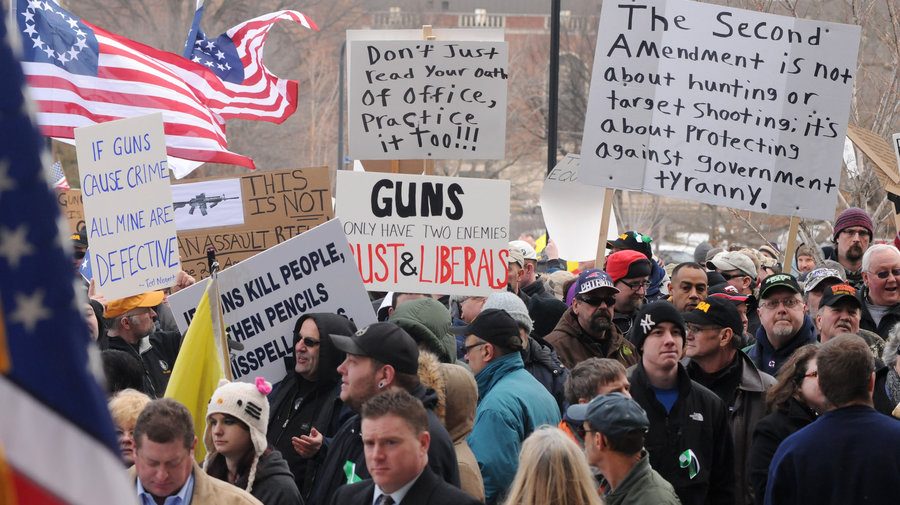Tradition vs Safety: The Gun Control Debate
Protest for stricter gun control laws increased after the Las Vegas shooting.
October 25, 2017
The decision to follow the traditional law or to ensure the safety of citizens has been debated for decades. Gun control is a controversial topic with passionate opinions on two sides both refusing to surrender. The recent shooting in Las Vegas in October of this year had at least 59 victims and is the deadliest mass shooting in modern U.S. history, according to CNN. This tragedy has sparked further and deeper debate on the extent of American gun control. In order to understand the conflict which threatens to divide the nation, both arguments must be considered.
Those in favor of allowing citizens to possess guns largely base their argument on the Second Amendment of the Constitution of the United States. The Second Amendment states that “the right of the people to keep and bear Arms, shall not be infringed.” The Founding Fathers added this amendment to the Bill of Rights in order to prevent history from repeating itself; colonists were forced to fight a corrupted government without a professional army but rather with local militias of minutemen. As such, the Second Amendment serves to prevent power corruption and give citizens the freedom of self-defense. These opponents of gun control also believe the focus should instead be on providing quality educations about guns and safety.
The opposite side of the argument stands for gun control laws and refer to the frequently occurring mass shootings. According to Business Insider, 2017 has seen 273 mass shootings so far. This is nearly one mass shooting for every day of the year. Those in favor of gun control counter the opposing side by arguing the Second Amendment is outdated. They state mass shootings must come to an end, and the only way to do so is to enact stricter gun control laws. Limited access to arms will decrease civilian-caused shootings, and this is a major and compelling argument of those urging gun control.
The gun control debate has been largely influenced by social media and influential figures, such as celebrities. Twitter is the most used form of social media for those wishing to speak their opinions, discuss with others, and support sides with hashtagged topics. Celebrities often use their large followings to spread their messages. Emmy Rossum, for example, an actress with over 800,000 followers on Twitter, tweeted the message, “I believe in prayer, but it’s not enough by itself. We need better LAWS. In no world does a CIVILIAN need a MACHINE GUN. Let’s fix this,” which gathered nearly 18,000 likes.
Bureaucrats also take advantage of social media to voice their opinions. In the morning following the Las Vegas shooting, Presidential candidate Hillary Clinton tweeted, “Our grief isn’t enough. We can and must put politics aside, stand up to the NRA, and work together to try to stop this from happening again.” This tweet was liked by over 200,000 people.
President Donald Trump, notedly, has not taken to Twitter to express his views despite being known for his public online rants. President Trump’s stance on gun control remains unclear. During his campaign, he appeared to be a strong supporter of the Second Amendment and expanding background checks, according to LA Times. Whether or not his opinions were affected by the Las Vegas shooting are also uncertain; before visiting, Trump stated, “We’ll talk about gun laws as time goes by,” according to LA Times. Presidents are likely to be vague about their standings and appear as neutral as they can about controversial topics such as gun control.
There are several strong arguments for each side of the gun control debate, which has become a recurring topic in media following the Las Vegas shooting. Shifa Mirza (10), a proponent of gun control, believes, “The shooting in Las Vegas was a horrible event which could have been completely prevented if we had stricter gun control laws.” While final decisions or changes in the near future seem unlikely, continuations of this debate are certain.






































